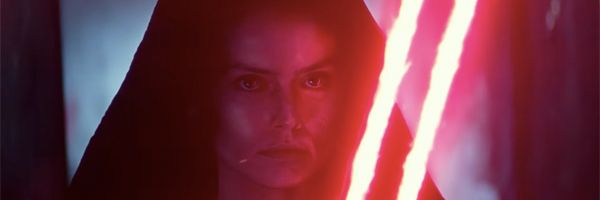Star Wars: The Rise of Skywalker is exactly two weeks away, and while we don’t yet know every secret it holds, today we know one more thing: it could be dangerous for folks with photosensitive epilepsy. According to The Hollywood Reporter, some of the film’s flashing lights sequences are significant enough to warrant a warning from Disney to cinemas, asking that moviegoers be notified.
In addition, the Epilepsy Foundation is working with Disney to ensure the film is viewed as safely as possible.
Disney issued a letter to cinemas around the world stating this:
“Out of an abundance of caution, we recommend that you provide at your venue box office and online, and at other appropriate places where your customers will see it, a notice containing the following information: Star Wars: The Rise of Skywalker contains several sequences with imagery and sustained flashing lights that may affect those who are susceptible to photosensitive epilepsy or have other photosensitivities.”
Said flashing lights, if intense enough, could trigger seizures for those with epilepsy. Roughly three percent of people experience the neurological disorder in this way. Migraines can also result from flashing/strobe lights. I’ve already informed my niece, a 12-year-old Star Wars nut, who also suffers from this condition, which is more common in young people.
Disney is not yet revealing any information about the scenes featuring this sort of thing, or when they occur. But the studio has apparently learned a thing or two after last year’s release of Incredibles 2. Warnings did not go out this far in advance for that one, which includes flashing lights sequences.
Here’s the full statement on the matter from the Epilepsy Foundation:
The Walt Disney Studios and the Epilepsy Foundation are working together to advise photosensitive viewers to use caution when watching Star Wars: The Rise of Skywalker. The film contains several sequences with imagery and sustained flashing lights that may affect those with photosensitive epilepsy.
We thank Disney for reaching out to us and proactively providing information to movie theaters and moviegoers in advance of the movie’s release. If you or someone you know are sensitive to lights, please consider the following as you make plans to watch the movie:
• Ask a friend to watch the movie first.
• Take your friend with you when you go see the film to alert you to which scenes contain the flashing lights so you block your eyes during those scenes.
• Teach your friend the three simple steps of seizure first aid — Stay, Safe, Side — so that they can assist if you have a seizure.
For about 3% of people with epilepsy, exposure to flashing lights at certain intensities or certain visual patterns can trigger seizures. This condition is known as photosensitive epilepsy and it’s more common in children and adolescents.
To learn more about photosensitive epilepsy, including what you can do if flashing lights bother you, please visit www.epilepsy.com/photosensitivity.


